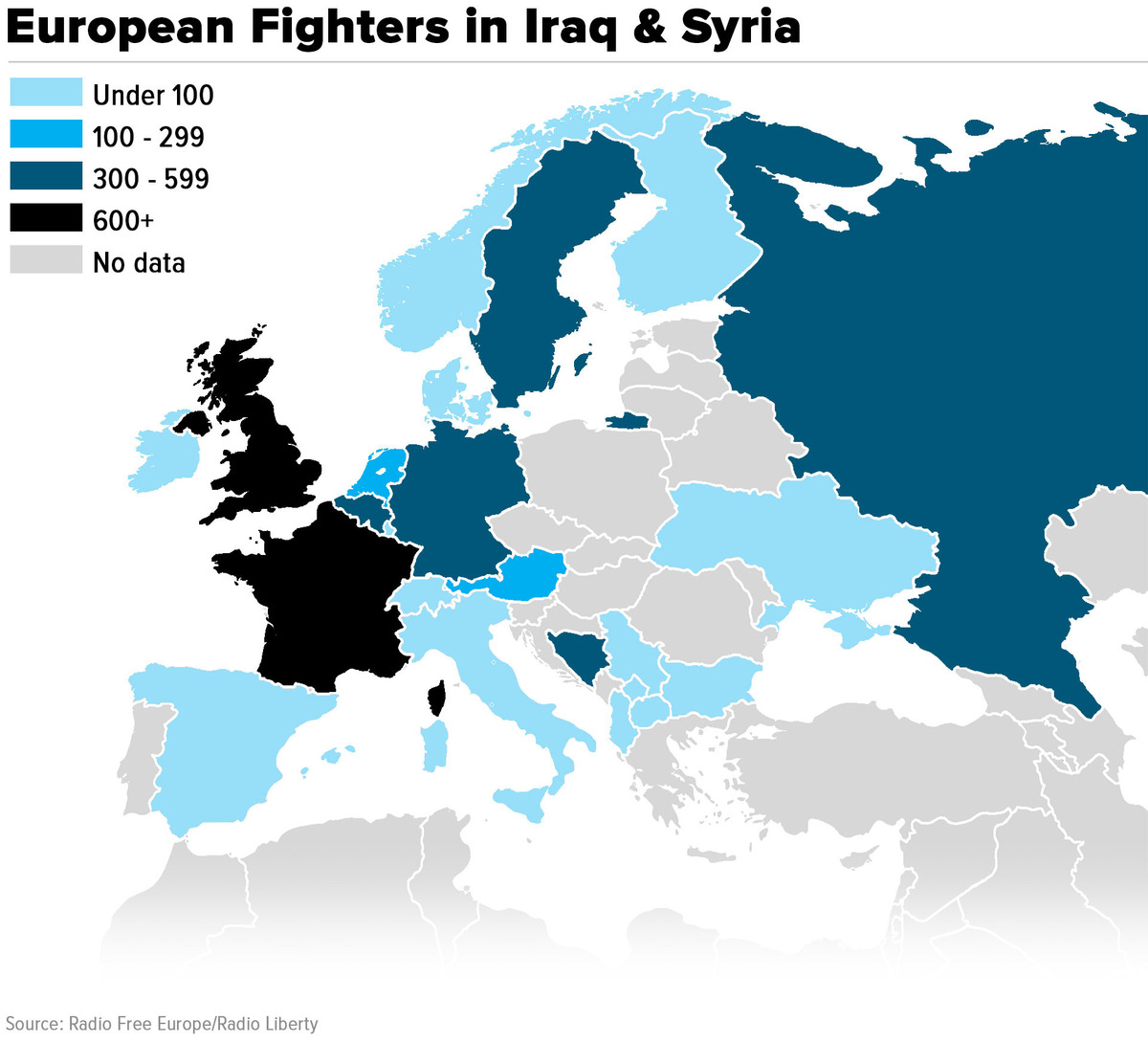Hundreds of French citizens have joined radical groups in Syria and Iraq
Hundreds of French citizens have gone to fight with radical Islamic groups in Syria or Iraq, France’s government says — perhaps more than from any other European country.
This week’s attack on the Paris offices of Charlie Hebdo has brought that issue to the fore, as authorities continue their manhunt for two French nationals, one of whom had previously been caught trying to join the Iraqi insurgency.
The two suspects at large, brothers Chérif and Said Kouachi, are French nationals who were born to Algerian parents in Paris. (A third suspect, 18-year-old Mourad Hamyd, turned himself in to police Wednesday; his classmates say he was in school at the time of the attacks.)
Chérif Kouachi was arrested in Paris in 2005, caught trying to fly to Damascus, Syria, on his way to join the Iraqi insurgency, according to a 2008 Bloomberg report. He told a court that the abuse of detainees by U.S. troops at Baghdad’s infamous Abu Ghraib prison convinced him to go, Bloomberg reported.
The New York Times quoted a senior American official Thursday as saying that Said Kouachi had traveled to Yemen in 2011 and had been trained by al-Qaeda in the Arabian Peninsula while there.
The attackers on Wednesday reportedly shouted “we have avenged the Prophet Muhammad” after gunning down the staff of Charlie Hebdo. The magazine has frequently satirized Islam, among other religions.
The reports of French citizens falling in with radical groups in the Middle East have bred concern that these people may return as battle-trained fighters taught to follow an extreme, violent and twisted version of Islam. France has reportedly foiled five terror plots in the past 18 months, and authorities dealt with a string of “lone wolf” attacks on pedestrians in December that some security experts believe could be linked to terrorism.
Security experts disagree on the number of French fighters who have gone to Syria and Iraq.
Radio Free Europe reports that around 930 French fighters are involved “in jihad,” compared with around 100 from Spain, 450 from Germany and at least 600 from the United Kingdom. French Interior Minister Bernard Cazeneuve told the nation’s parliament on Dec. 17 that around 1,200 French citizens had left to fight, and 390 were members of radical Islamist groups in the Syrian War, which has spilled into Iraq.
Around 185 fighters have made their way back to France, Cazeneuve said. Of those, the majority are either in jail or being closely watched by the government.
Individuals often have different reasons for fighting in Syria or Iraq, but France may be a particular hotspot for radicalization for several reasons.
The French military has been involved in counterterrorism and military operations in predominantly Muslim nations such as Mali, Libya and Iraq, which has fomented resentment, said Simon Palombi, a counterterrorism expert at Chatham House, an international affairs think tank.
Islamist groups often use France’s involvement in counterterrorism operations to radicalize individuals who may already be leaning toward extremism.
And France is home to Europe’s largest Muslim population — many of whom feel they have fewer opportunities than other citizens, and feel that their faith is stigmatized amid France’s secularism. That could lead a select few of them to join radical causes.
Muslims “live terribly marginalized lives in France, where often times they’re treated poorly,” Tom Sanderson, a terrorism expert at the Center for Strategic and International Studies, toldMashable. “They’re looking for a sense of purpose, respect and dignity.”
The vast majority don’t turn to violence. But a small number of people could buy into propaganda from groups like al-Qaeda, even if they don’t travel outside their home country. The radical rhetoric of extremist groups is also meant to inspire lone-wolf attacks.
MASHABLE

